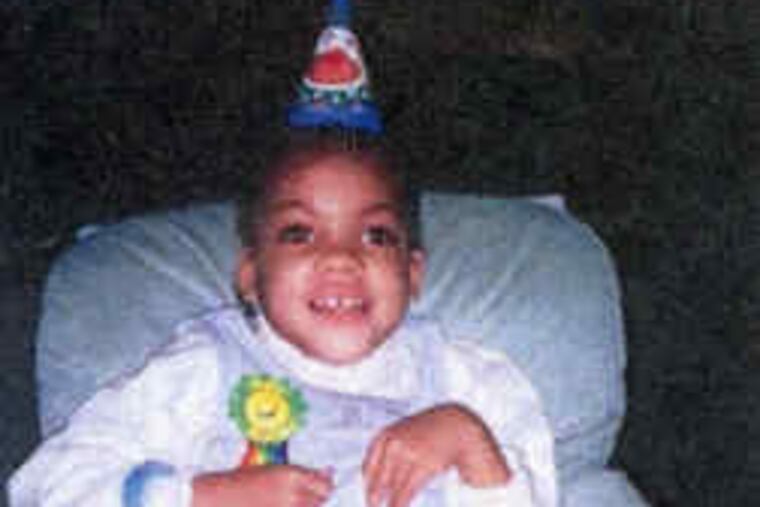Last defendants in girl's starvation death get prison
The caseworker who was supposed to have been 14-year-old Danieal Kelly's final safety net as she starved to death in West Philadelphia was sentenced to 11 years in prison Friday.

The caseworker who was supposed to have been 14-year-old Danieal Kelly's final safety net as she starved to death in West Philadelphia was sentenced to 11 years in prison Friday.
Julius Juma Murray was hired to visit Kelly's home twice a week, but testimony at trial was that Murray, 52, had likely not shown up for at least a month. During that time Kelly's flesh was rotting from giant bedsores.
"If you had to pick one who really killed this girl, it was this gentleman," said U.S. District Judge Stewart Dalzell. "I use the term loosely," he added.
Dalzell spoke as he sentenced the last defendants from the federal case against MultiEthnic Behavioral Health Inc., the agency hired by the city between 2000 and 2006 to oversee hundreds of at-risk children.
Murray was one of four managers and employees convicted in March of fabricating reports and destroying documents to hide the fact that caseworkers skipped hundreds of home visits to dozens of clients. Five others pleaded guilty.
Dalzell said Kelly's "gruesome death" required the failure of her parents, the city, the schools, and the agency paid to protect her.
It was, said the judge, a remarkable demonstration of "the banality of evil." That phrase was used by Hannah Arendt in her book about the trial of the Nazi Adolf Eichmann, whose defense for organizing mass murder was that he merely followed orders.
"Human beings are unbelievably complicated people," said Dalzell, who was appointed to the bench in 1991. "Even people who can seem to be absolutely normal, law-abiding, good people can be monsters. The same people."
Dalzell spoke after he was told that Murray once saved three children from rebels in his native Sierra Leone. His lawyer, William R. Spade Jr., noted that some of Murray's clients praised his work.
Murray, who has also pleaded guilty to entering the country illegally, sat at the defense table with his hands folded in front of his face. He did not visibly react to Dalzell's comments.
Murray still faces a city trial on manslaughter charges.
After Murray's appearance, Dalzell sentenced Miriam Coulibaly, 41, to 11 years. Coulibaly did not handle the Kelly case, but was found guilty of fabricating home-visit reports and lying about them to a federal investigator.
Coulibaly, a caseworker with two master's degrees and the mother of three girls, first admitted to the chief investigating agent that she had faked documents, but two weeks later gave a sworn statement recanting that admission, opening her up to the criminal charge.
"She did so even when the case agent all but begged her not to," said Dalzell. That was federal Department of Health and Human Services criminal investigator William McDonald. "If there was a hero in this case, other than the newspaper," it was McDonald, said Dalzell.
The federal investigation started after McDonald read a lengthy article in The Inquirer about Kelly's death. He realized the agency was paid with federal HHS funds.
"If he didn't read the paper, we might not be here today," agreed defense attorney William Brennan.
Dalzell was also angered when he learned Friday that after her conviction, Coulibaly transferred $50,000 to a third party, apparently to avoid paying court-ordered restitution.
Coulibaly; her husband, Saidu, a teacher; and her attorney, Brennan, nevertheless asked Dalzell to limit her sentence to five or six years. After her release from prison, she faces deportation to her native Mali.